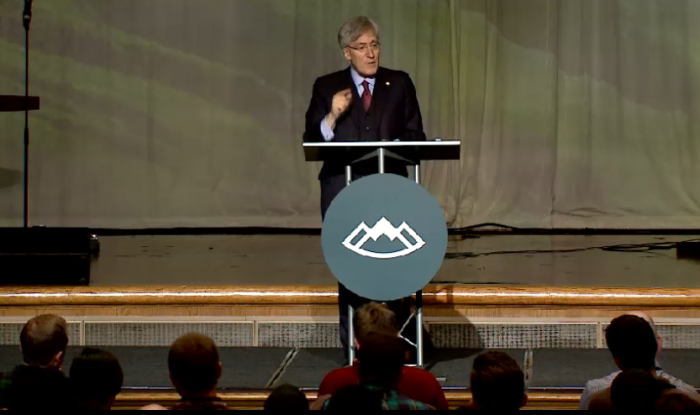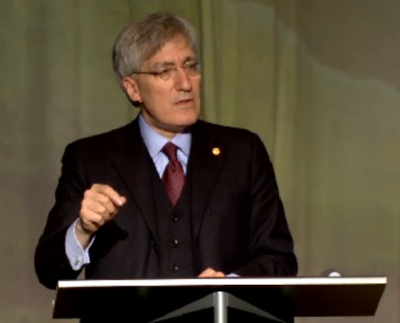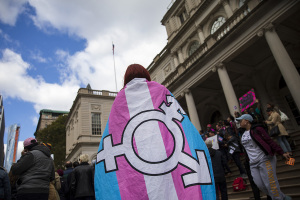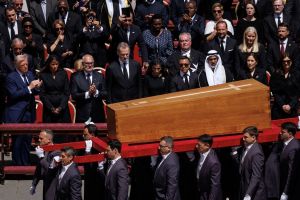Robert P. George: Sexual Revolution Is Hurting Poor People Among All Races in America, Not Just African-Americans

Robert P. George says the sexual revolution is hurting lower income Americans of all races, not just black communities, with family disintegration contributing to poverty.
In his analysis of the state of American families, George referred to a 1965 government report by the-late politician and sociologist Daniel Patrick Moynihan who believed the crisis befalling the African-American community was due, in part, to the lack of a family structure, which leads to "juvenile delinquency and adult crime."
Moynihan's conclusions about the need for strong families in both the African-American community and America overall "were hard pills to swallow," George said, speaking about the legacy and importance of Moynihan's report on Thursday, at the Southern Baptist Convention's Ethics & Religious Liberty Commission's Leadership Summit in Nashville, Tennessee, that discussed the need for a Gospel-centered approach to racial reconciliation.
"[His critics] didn't want to face it. Easier to call him a name. Dismiss him. Not deal with the problem while people are suffering," George added.

"When he was attacked and vilified, called a racist, accused of blaming the victim, a profound emerging problem was left unaddressed. Fear caused others, fear of being called names, caused others to lose courage and tell the truth," the Princeton University professor asserted, arguing that Moynihan was a "truth-teller" for his report decades back on the state of the African-American family.
George noted, however, that one weakness of the 1965 report was that Moynihan thought the family crisis befalling the African-American community was unique to said community.
"Moynihan was convinced that what he was witnessing was fundamentally a phenomenon of the black community and so could be explained, he thought, by the tragic history of racial injustice," George countered.
"The evidence now overwhelming is that it isn't about race … this same pattern, these same pathologies, these same phenomena [exist] in the lives of poor Americans of all races."
According to George, it's a struggle to tackle the problem of broken families because the sexual revolution of the past half-century has downplayed the need for the married nuclear family model.
In addition to George, other speakers at the leadership summit included Russell Moore, author and president of the ERLC; Fred Luter, the first black president of the SBC; Afshin Ziafat, head pastor of Providence Church in Frisco, Texas; and Tony Evans, president of the Urban Alternative.
The theme for this year's summit is "The Gospel and Racial Reconciliation," with guest speakers discussing a biblical approach to race relations.
In a promotional video for the leadership summit posted earlier this week, Evans explained the value of the theme for the summit.
"The Gospel not only teaches us to be right with God, but when its fully operative, it teaches us to be right with each other," Evans said. "We expect God to do great things in bringing together folks from all over to share in this great, exciting experience. The Gospel can change lives, but it can also change relationships."
In addition to his speech, George was also part of a panel on Ferguson, Eric Garner, and experiences in American communities.
The panel included George and Moore, and was also comprised of D.A. Horton, national coordinator for Urban Student Missions at the North American Mission Board and Thabiti Anyabwile, assistant pastor and council member with The Gospel Coalition.
Phillip Bethancourt, executive vice president of the ERLC and assistant professor at Southern Baptist Theological Seminary, served as moderator.
This is not the first time that George has linked the decline of marriage in American with poverty. Last October, George argued that the decline of marriage harmed children in poverty.
At an event in Washington, DC hosted by the Institute on Religion & Democracy, George argued that the fight for marriage is not "some abstract moral thing" but rather a fight for the well-being of children, "who are, in the end, the victims of a culture that throws marriage under the bus."





























